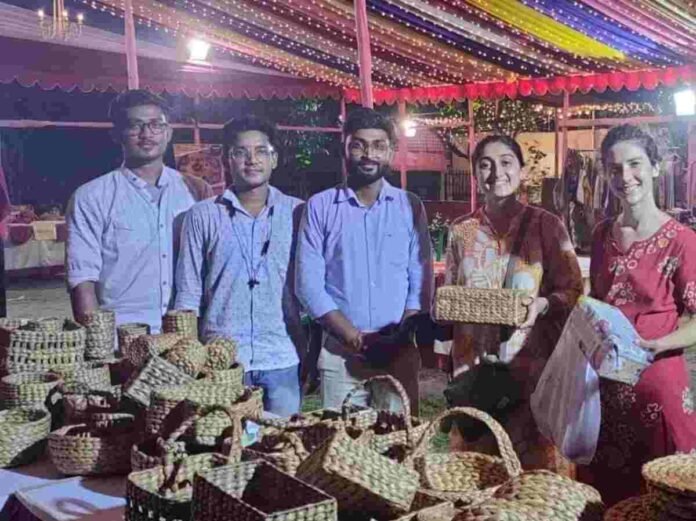BIRBHUM, WEST BENGAL — In a world racing toward modernity, pockets of rural India still remain untouched by its benefits. One man, however, has made it his life’s mission to bridge this gap. Meet Bibrashu Paramanik, a dedicated social entrepreneur and the visionary founder of the Birbhum Institute of Rural Development Foundation (BIRD) — an organisation breathing new life into the dreams of Gurudev Rabindranath Tagore through rural reconstruction.
Deeply inspired by Tagore’s Sriniketan experiment, Bibrashu believes that true development must be rooted in community cooperation. “Poverty springs from disunity; wealth comes from unity,” he says, echoing a philosophy that defines his Foundation’s approach. BIRD Foundation works tirelessly to deliver holistic development —from livelihood generation to health, education, women empowerment, and agriculture.
One of BIRD’s most innovative and celebrated initiatives involves transforming invasive water hyacinth into eco-friendly products. This project not only combats environmental pollution but also empowers over 250 rural women artisans in Birbhum , training them to craft bags, mats, baskets, and home décor items now sold across India and abroad. The effort involves both women and men — with the latter collecting and processing the water hyacinth — showcasing an exemplary model of rural cooperative enterprise.
The BIRD Foundation currently acts as the Special Purpose Vehicle (SPV) for the Water Hyacinth Products Cluster under the MSME & Textile Department, Government of West Bengal, and is also conducting training programs in Paschim Medinipur, West Bengal & Jharkhand’s Bokaro district and Puducherry, Aurobindo Society under Aurobindo Ashram.
Beyond water hyacinth, the organization runs skill development initiatives in batik printing, kantha stitch, tailoring, food processing, and various agri-based training modules — all backed by marketing and credit linkage support, making rural entrepreneurship sustainable.
Despite these strides, financial constraints remain a challenge. “Often, we have to halt our work mid-way due to lack of funds,” says Bibrashu. He is now seeking CSR partnerships and crowdfunding support to continue his mission of bringing global opportunities to rural doorsteps.
In a time when sustainable development is more than just a buzzword, Bibrashu Paramanik stands as a true changemaker, reviving Gandhian and Tagorean ideals through grassroots action — one village at a time.


